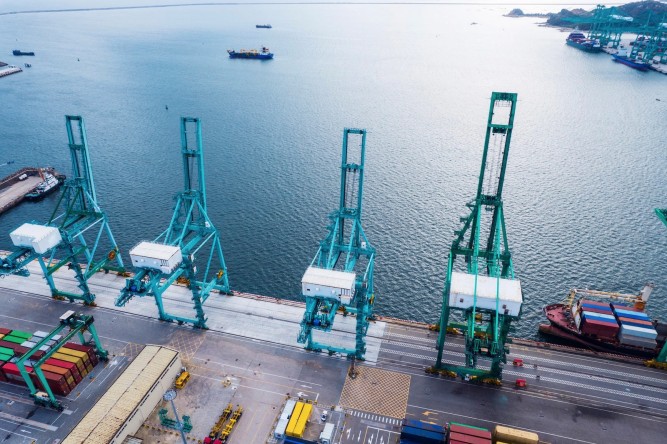In a context of disruptions affecting international supply chains due to the consequences of the conflict in Ukraine and the lasting impacts of the pandemic, a Ministerial Forum on supply chains was held on July 19 and 20, via videoconference , at the initiative of US President Joe Biden . A discussion period at the end of which a group of 19 partners signed a joint statement indicating their desire to collaborate to reduce disruptions and bottlenecks in global supply chains affecting logistics and transportation players, while They work to achieve long-term resilience. .
19 partners from all continents
These 19 partners include the European Union as well as 18 countries on all continents: Germany, Australia, Brazil, Canada, Democratic Republic of Congo, Costa Rica, South Korea, Spain, United States, France, India, Indonesia, Italy, Japan , Mexico, Netherlands, United Kingdom, Singapore. In this press release, which has the value of a first declaration of intent, these countries express their willingness to work together in the current crisis, including companies, employees, academia, civil society and all levels of government. ” Building collective and resilient long-term supply chains, based on international partners, is crucial for this effort to succeed. To do this, we will follow some fundamental principles of the global supply chain “, states the press release.
Transparency, security, diversification and environment
Among these fundamental principles, in the first place, transparency, by advancing in the exchange of information between countries, with alert systems on potential, emerging or systemic problems that may affect the supply chain. The document also points out the importance of diversification, in order to increase the capacity of each country to have multiple, reliable and sustainable supplies of materials, semi-finished or finished products, with the aim of making economies less vulnerable. “ We want to promote the participation of small and medium-sized companies in the most demanded supply chains, as well as the adaptation of digital technologies for them. Predictability is important for resilient supply chains and we want to work together to promote open, fair and non-discriminatory economic relationships. “, the partners said. Another key point is security, to identify the risks that may arise in the event of supply dependencies or vulnerability of critical infrastructures. In short, dernier sujet et pas des moindres, la durabilité, avec la volonté d’encourager les business les más responsable et vertueux, en suivant les objetifs internationaux fixés (l’UNFCCC: United nations framework vonvention on vlimate vhange, even if the Accord from Paris). “ We want to eradicate forced labor in global supply chains, increase the use of recycled materials and components and aim for more responsible trade with the circular economy, the bioeconomy and other approaches that advance the fight against climate change, the loss of biodiversity and pollution. », underlines the document.
If this first step does not mention clear objectives or deadlines to advance on these different points, it ends by inviting all international economies to join this initiative to create more resilient supply chains. ” The key to responding to the next big supply chain crises is to prevent them from happening. “, conclude the partners.

“Total social media fan. Travel maven. Evil coffee nerd. Extreme zombie specialist. Wannabe baconaholic. Organizer.”







